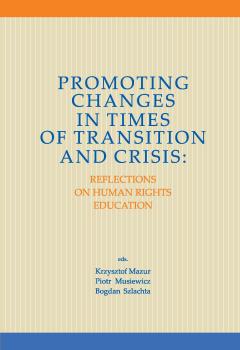Human Rights Education in the Basque Country (Spain). A Model for Divided Societies? .......... 345
Synopsis
For decades, Basque society has been suffering different types of violence: civil war of Spain (1936-1939); repression under the dictatorship of the Franco Regime (1939-1977); and, more recently, during the transition to democracy, both terrorism carried out by non-state actor actors (ETA) and torture, police abuse, as well as other kinds of politically-motivated violence committed by the State (and/or state-sponsored or state-like) apparatus (1977-2011). The result has been a deeply divided society where violence has been used systematically in an attempt to achieve political goals both related either to (a higher de-gree of ) autonomy/independence for the Basque region or to a greater deal of identifica-tion-integration with(in) Spain.In 2007, a Basque Education Plan for Peace and Human Rights (Basque Plan) was approved as a result of a long participation process that lasted almost two years, and suc-ceeded in enabling a full range of stakeholders (NGOs, Basque Defender of the People’ of-fice, Youth representatives, Universities, Human Rights Institutes, formal and non-formal educational agents, Basque media, local, regional and central Basque Governments’ au-thorities etc) to present proposals and to draft the final document. Following the model plan (Guidelines for national Plan of Action for Human Rights Education A/52/469/Add.1, 20 October 1997) issued within the framework of the United Nations Decade for Human Rights Education of United Nations (1995-2004; A/RES/49/184, 6 March 1995) and with the support of the Office of the United Nations High Commissioner for Human Rights, the Basque Plan was included as a Good Practice at international level.22The Plan seeks to identify steps whereby the Basque Country can use education as a means to improve the promotion and protection of human rights and it has four main strategic goals: to raise social awareness about human rights; to educate society about hu-man rights; to enforce institutional work in human rights and peace education; and to coordinate policies of peace education and human rights in the region. The Plan is based primarily on non-formal approaches but also incorporates actions specific to the school system.The aim of this paper is, on the one hand, to present the process of drafting a Basque Plan, its structure, main contents and implementation. On the other hand, however, it will be worth illustrating positive achievements acquired by means of the Plan but also political and technical difficulties the plan has been coming through so far.Finally, as a conclusion, in analysing the mentioned implementation process and the evaluation of the Basque Plan it will be subject to discussion whether a direct peace educa-tion (i.e. that which face its own ongoing violations of human rights), and not just an indi-rect one, is likely to be successfully carried out in divided societies and under which kind of conditions should it be possible.





